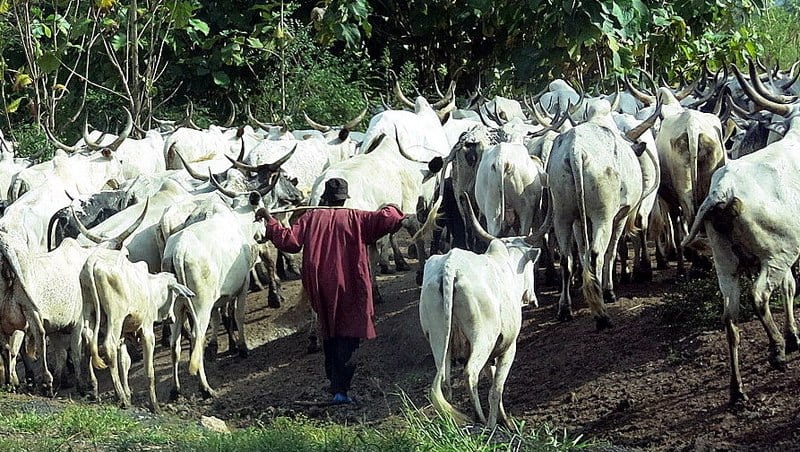
INTRODUCTION
The arable farmers and Pastoralists conflicts have been pre – dated to colonial days. Historically, the colonial masters faced the challenges; the major herdsmen / farmers conflict of 1948 was a good example.
The genesis of this persistent and prevailing conflict could be traced to the unhealthy competition for natural resources. Arable farmers hitherto need farmland and secured environment for their farming and economic activities.
On the other hand, Pastoralists heavily depend on natural vegetation to actualize their livestock practices for economic sustenance. The consequence of this is the heavy pressure on the land due to these uses and other land uses.
REAL CONFLICT OR IMAGINED
The occurrence of conflict as reported daily in the media with attendance carnages leave us with no option than to accept that this conflict is real.
The current conflict has a dimension close to the past conflicts and can be traced to dwindling resources and uncoordinated approach to the land use pattern in Nigeria.
In a normative society, conflict is generally tolerated as a change agent, to change the narration of any given society; however, when the price is turned into severe human carnages, it becomes a source of concern that threatens national security; hence it requires holistic approach to solve.
Indeed we need to recognize the need of the Herdsmen or Pastoralists as much as the needs of arable farmers;
Pastoralists need grazing land which ordinarily the ranching or clustering cannot adequately provide; this is a plain truth and many have failed to recognize this.
Similarly, the arable farmers who ordinarily have access to the land for their farming activities need to secure his farm land from encroachment, other economic loss and possibly require additional land for expansion of his farming activities; here lies the solution if well balanced.
This conflict can therefore be resolved if an arrangement is put in place to avoid conflict in the use of land.
Currently, Nigeria geo – spatial arrangement is yet to be zoned both at the state and national levels.
Quite interestingly, there are past and present attempts by some States to designate some areas for industrial, residential, mining, agricultural purposes etc;
hence you have specific areas designated as agricultural areas that are encroached for residential and other non- related agricultural use.
Within the agricultural zones are areas so designated for grazing reserve, arable farming and Forest Reserves; but sadly, these areas are not properly delineated; and this is the source of the conflict.
Conflict of any kind will be reduced or put to STOP once the Pastoralist is assured of the right to grazing land. Ranching to some extent can work but is not the same as having access to the grazing land by the Pastoralists.
Nigeria has over 40 Million hectares of marginal land which are not even suitable for arable farming, but can be converted to Grazing Reserve. This is more than enough to support the current cattle population in Nigeria. Currently, there are 3 Million hectares of land designated for 299 grazing Reserves of which 115 Grazing Reserves were identified and just only 23 have been gazetted, covering 500, 000 hectares.
The rapidly growing population and uncoordinated land use is responsible for the misappropriation of grazing land and encroachment of cattle / stock routes; hence you are confronted with a situation where cattle and herdsmen knowingly and unknowingly stray into the farmland with attendant conflicts.
Against this background, the following are proffered as possible approach to solve the problem:
Each of the State where grazing areas are designated should actualize area for grazing reserves for easy access to the Pastoralists and where necessary grant them the Rights of Occupancy.
The States in conjunction with Federal Government should provide the grazing reserve with basic infrastructure such as water supply, pasture development or rural feeder road along the recognized stock or cattle route.
The funding for this infrastructure should be sourced from the National Ecological Fund.
Grazing Reserve should be a protected area for pastoral settlers and complement with health care and educational facilities.
Arable farmers are at an advantage to understand the basic pastoral system should cultivate a healthy and symbiotic relationship with the herdsmen / cattle rearers as it was done in the past. The cattle can feed on the ruminants on the field; while the cattle provide manure to enable farmers reduce the fertilizer in take .
Where nomads stray into farmland with cattle and destroy farmland, such arable farmers should be granted right to file statement of claim under a special insurance cover that may be arranged and vice- versa for any cattle killed under similar circumstance .This detail can be worked out using agricultural Insurance Scheme as Focal point.
In order to actualize this institutional arrangement, it will be expedient to create National Grazing Land Development Agency to oversee this concern across all the States and the Federal Capital Territory (FCT).










"Pastoralists need grazing land which ordinarily the ranching or clustering cannot adequately provide; this is a plain truth and many have failed to recognize this."
ReplyDeleteI seem to disagree with this statement pls. If it's working in other climes y not in Nigeria? Ranching is d best global practice. Reactivating d grazing reserves could b a temporary measure but ranching is more sustainable. Farming is a biz n cattle rearing cannot b an exception.